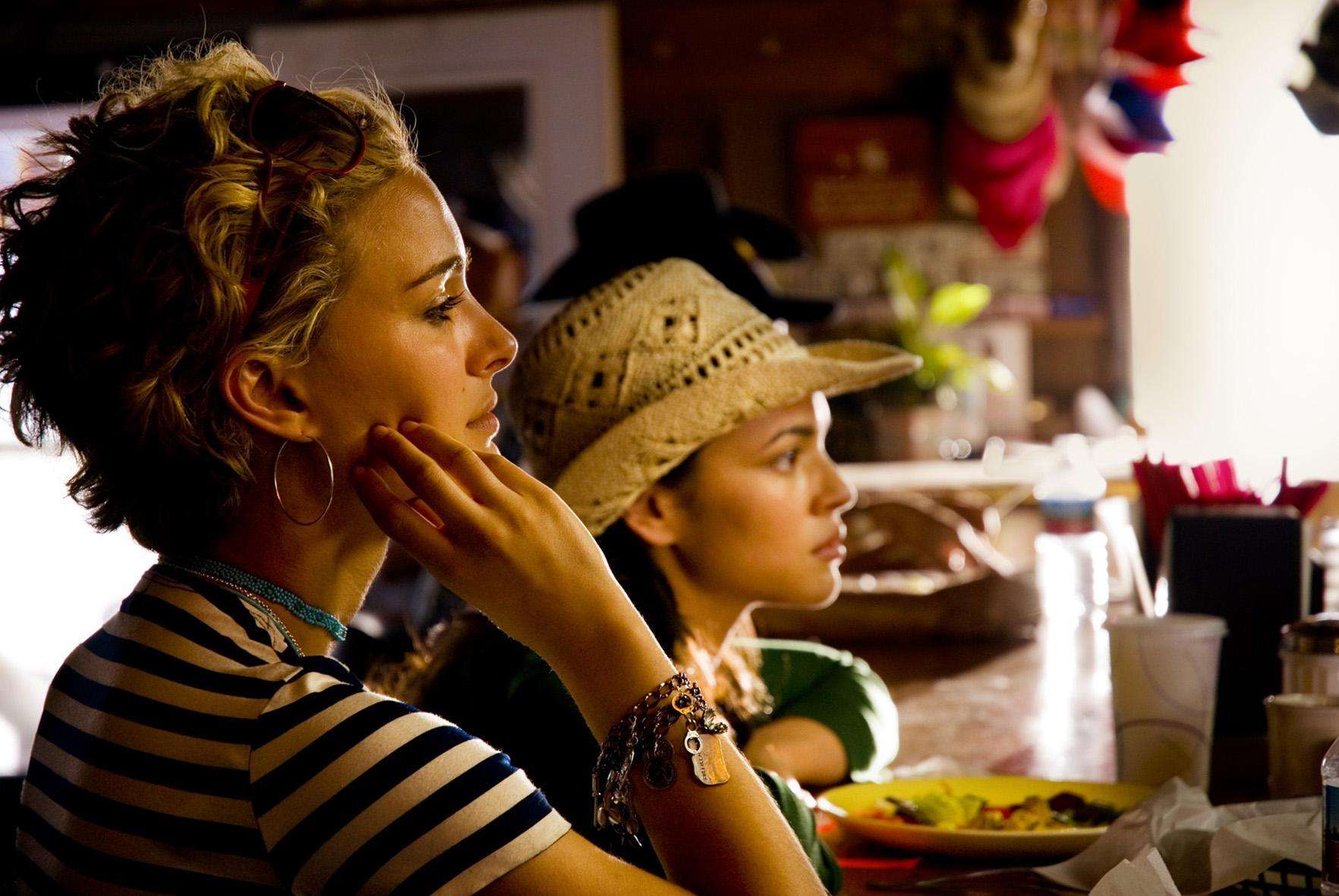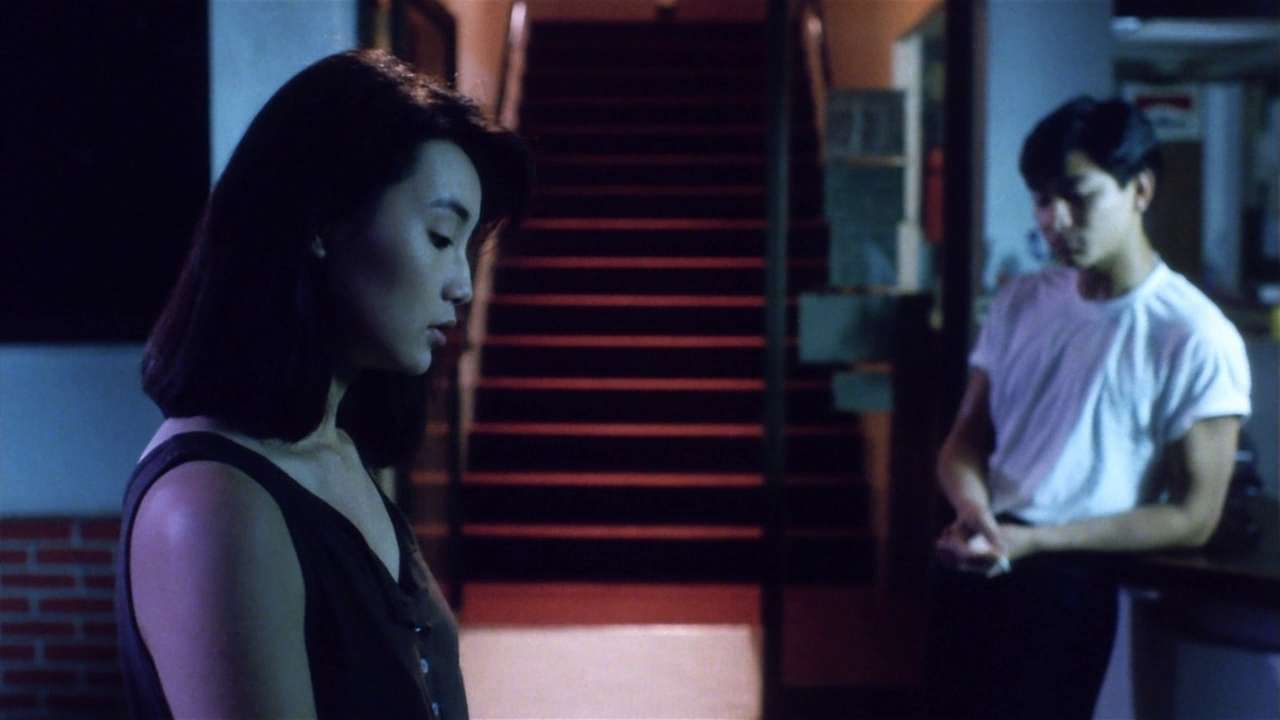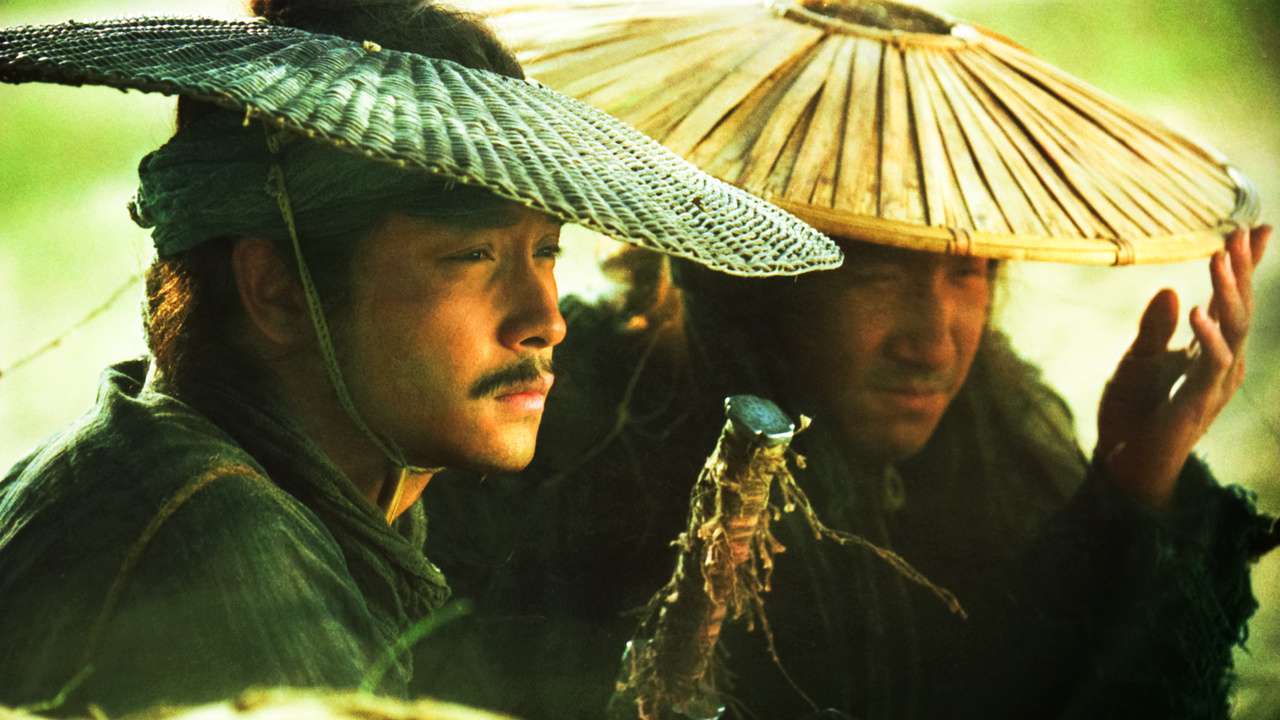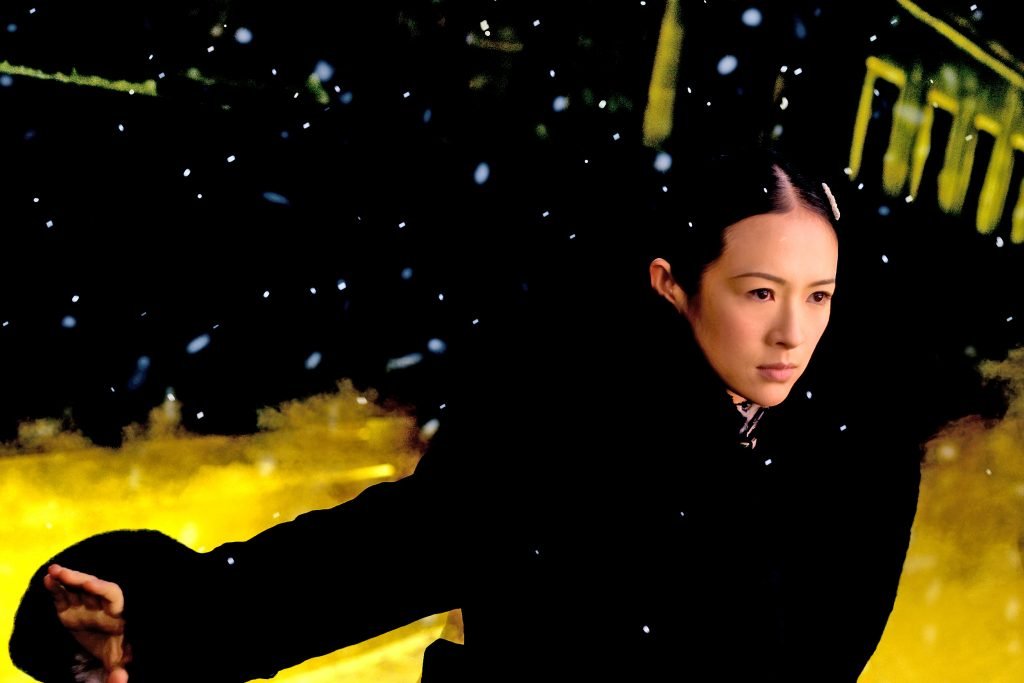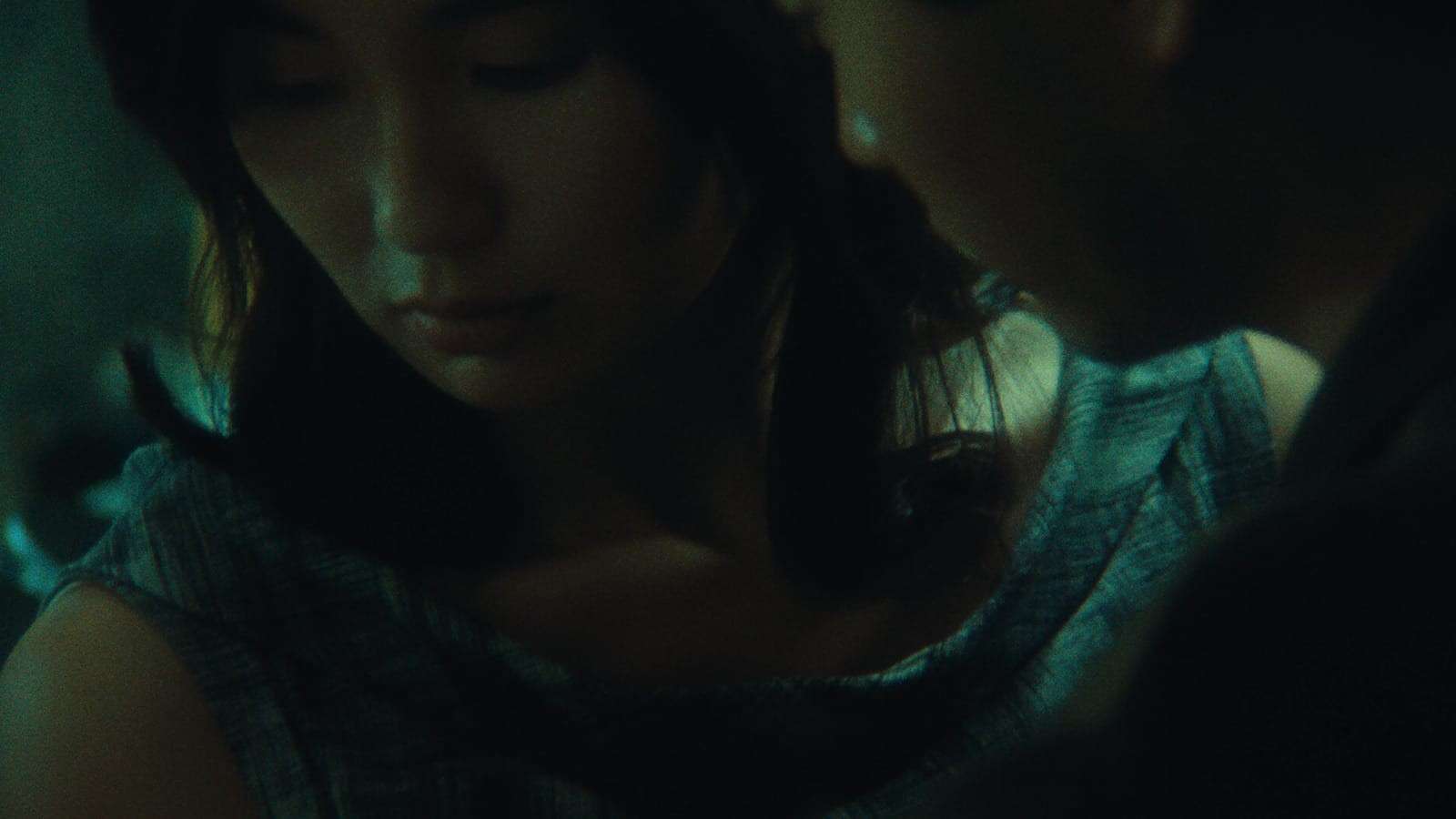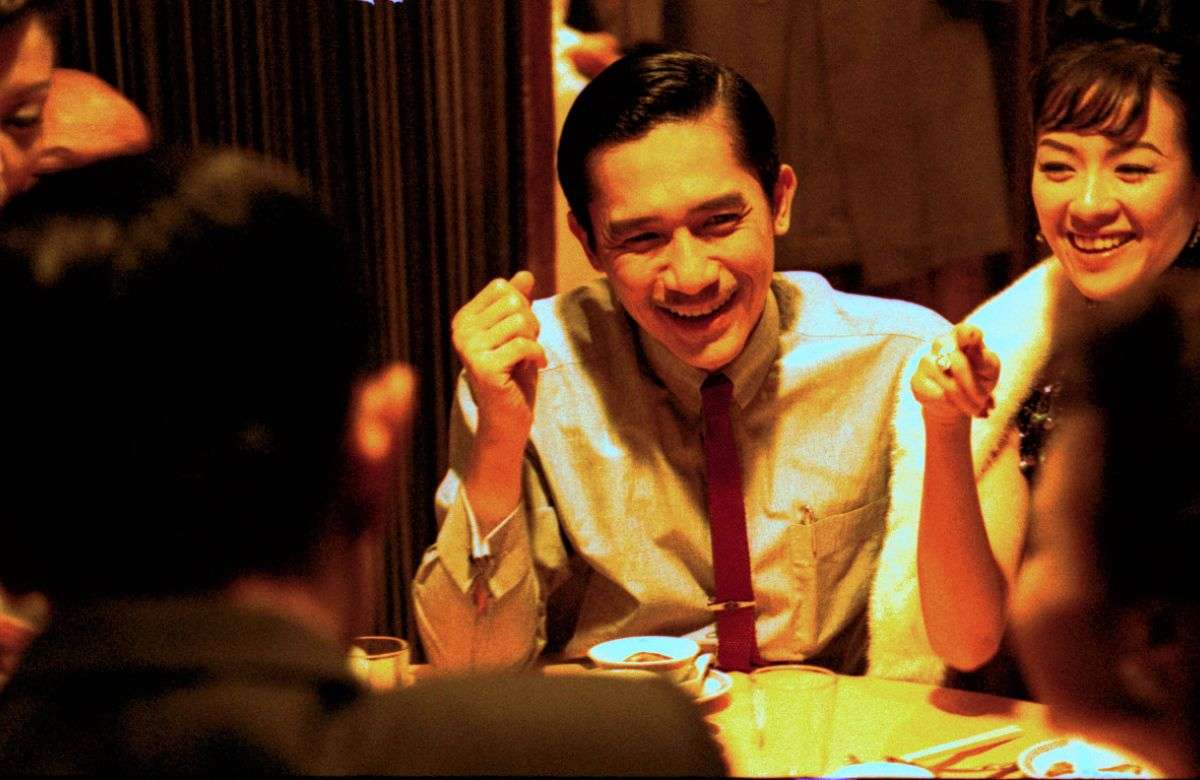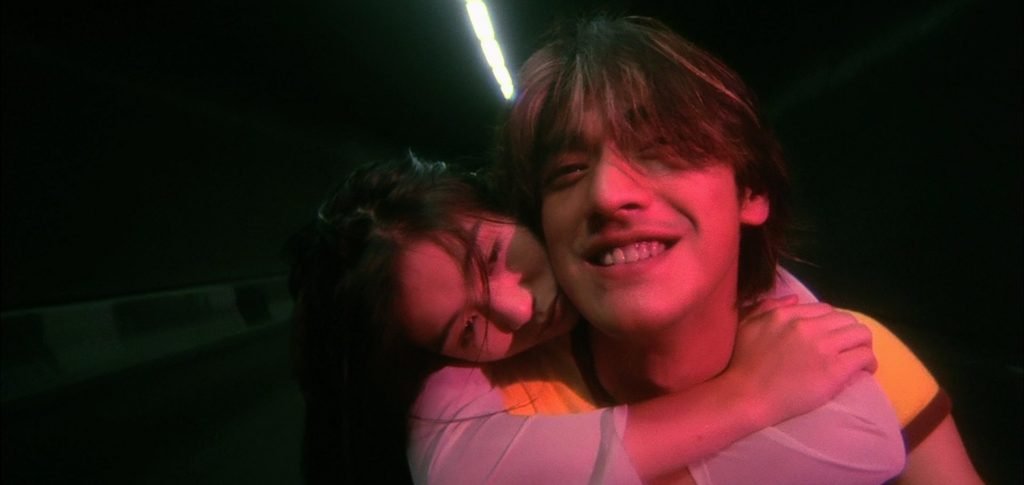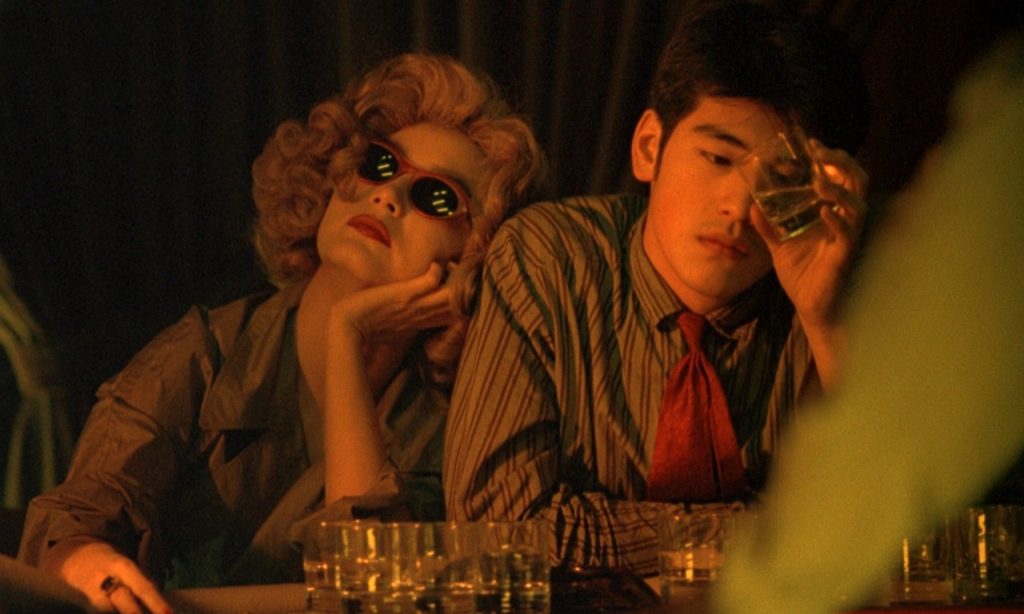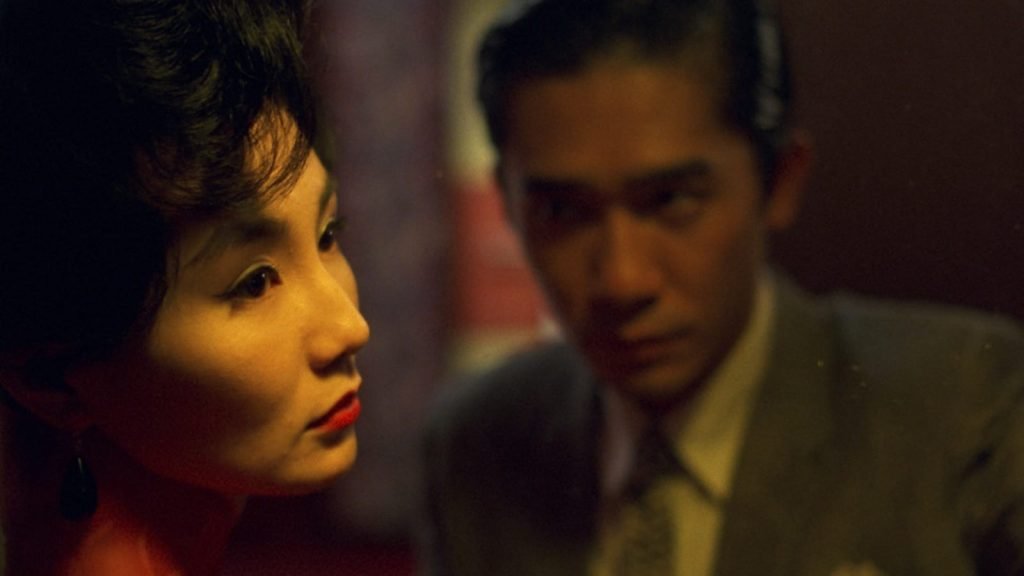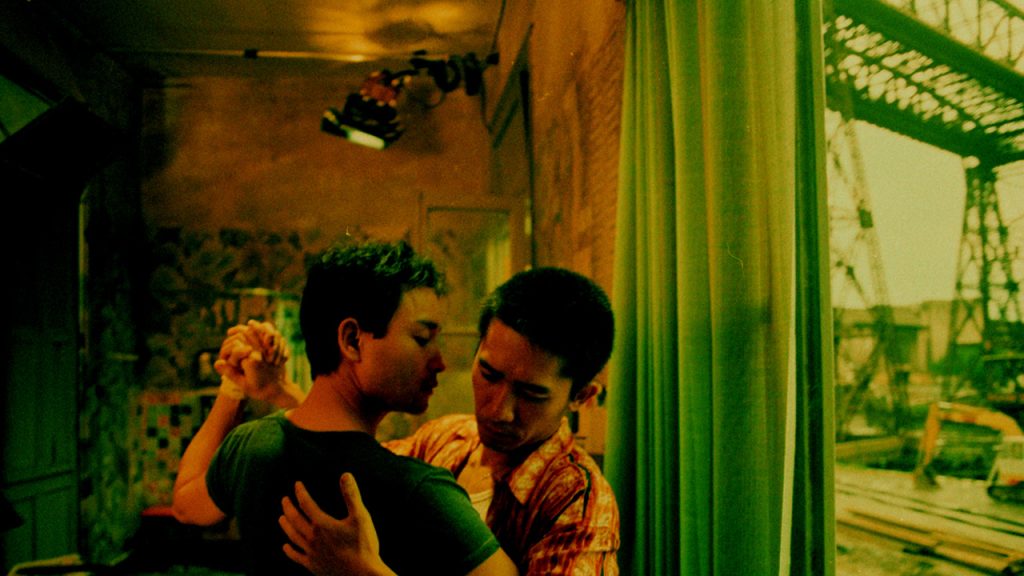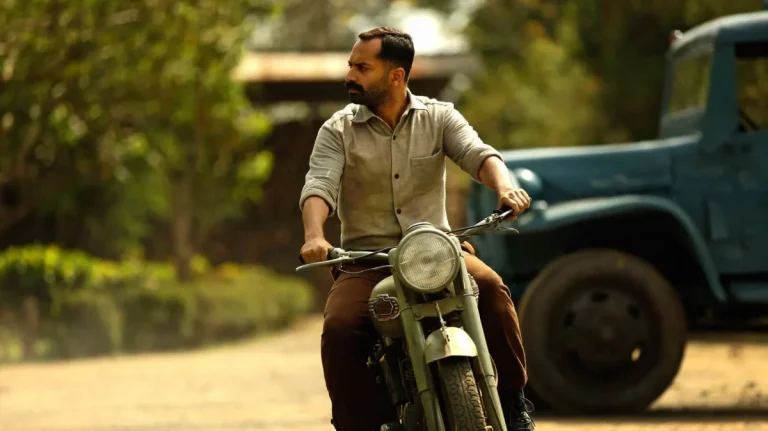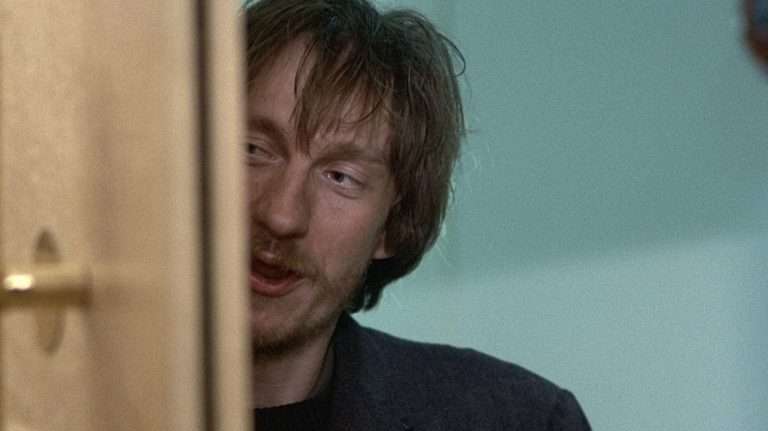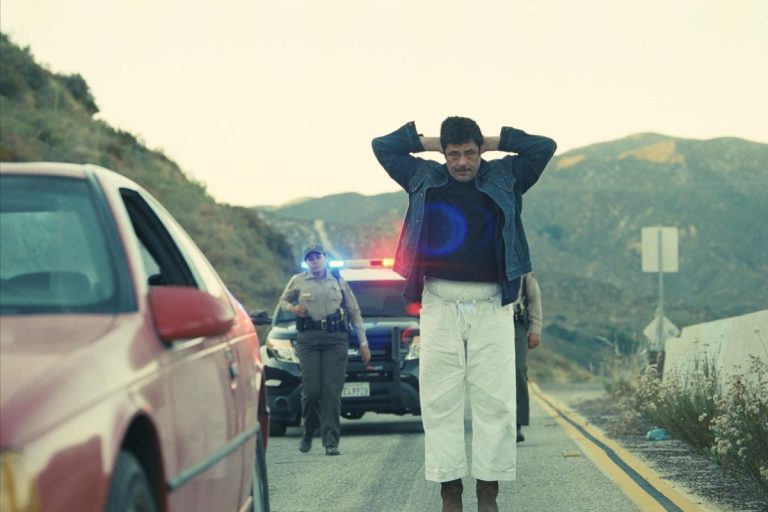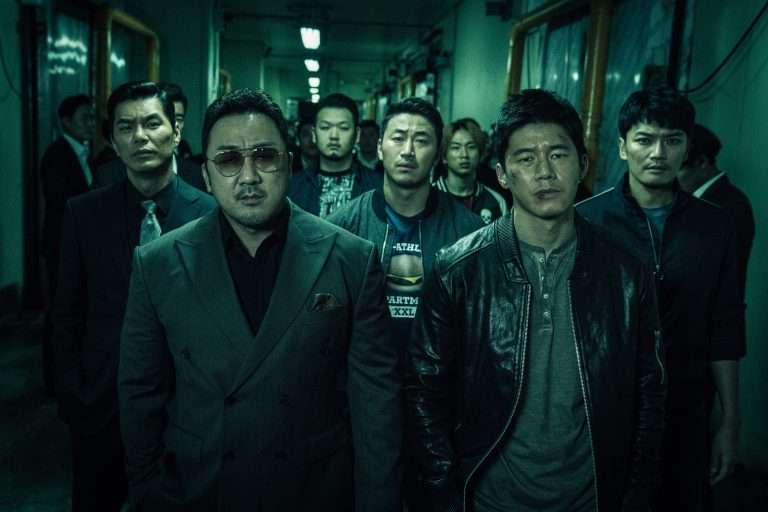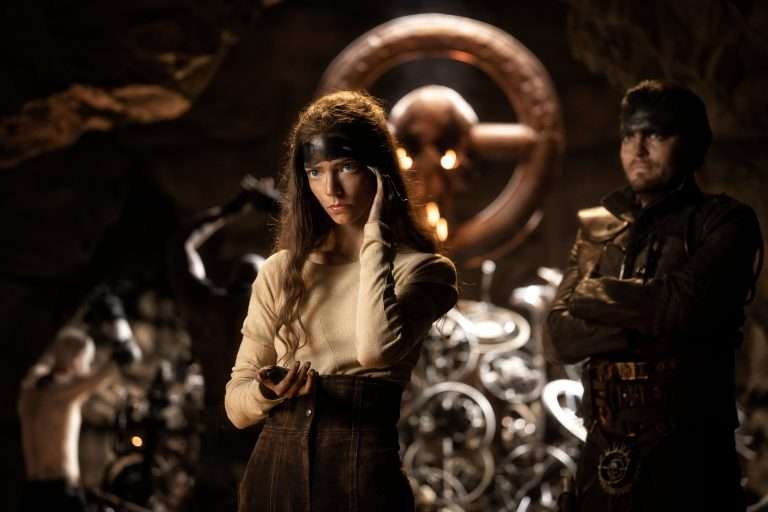Wong Kar-wai has had an illustrious career with a unique body of work. His films are often distinguishable because of his distinct cinematic style. So, it is impossible to talk about him without talking about his distinctive style, which largely dictates the worlds he explores. After all, we perceive his characters a certain way because of his unconventional creative choices. We learn far more about his fictional worlds through the way he lights a location, frames a scene, or plans a camera movement. A lot of credit for achieving this aesthetic goes to his long-time collaborators – cinematographer Christopher Doyle and production designer William Chang. Even if Kar-wai oversees every decision, Doyle & Chang remain instrumental in perfecting the final output.
Wong Kar-wai’s oeuvre stands out due to its stylistic individuality. His films often feature neon-lit cityscapes, moody, expressionistic music, and a non-linear narration. Their look and feel often depend on Kar-wai’s creative instincts. They offer us deep sensory experiences while refusing to fit into the box of conventional filmmaking. That’s why, through the years, has inspired countless filmmakers across the globe with the most notable examples being Barry Jenkins, Sofia Coppola, Bi Gan, to Anurag Kashyap. Regardless, his approach doesn’t always lead to profound results. So, beyond his masterful, unforgettable works, some of his films pale significantly in comparison to the others. Here’s a list of Wong Kar-wai’s movies ranked from good to best:
10. My Blueberry Nights (2007)
Darius Khondji is known as a chameleon cinematographer due to his ability to adapt to any director’s style that he works with. As a guy with a range of shooting Fincher’s “Seven”, and Haneke’s “Amour” to lighthearted romantic comedies from Hollywood, he proficiently adapts Wong Kar-wai’s signature style built with Christopher Doyle over the years. The nightscapes in ‘My Blueberry Nights’ are soaked in multicoloured neon lights that can warm up anyone’s heart. They make the darkness in the characters’ lives even more prominent.
Similar to This Wong Kar-Wai Film: Hirokazu Koreeda’s The Truth (2019)
The film takes the director out of the Hong Kong streets and puts him in the desolate US towns. Despite being set in a foreign country, he presents his trademark neon-dipped melancholy in the bars and the casinos. He presents a string of isolated characters like his other works. Thanks to the performances by Rachel Weisz, David Strathairn, and Jude Law, they resonate with you. They charm you with their hopelessly romantic worldviews. Still, the film does not leave a strong mark because it doesn’t explore enough of the mental landscapes of its characters. So, they are not nearly as memorable as the characters from Kar-wai’s other works. And, despite achieving Kar-wai’s distinct look, the film does not evoke the sense of vitality present in his previous works.
9. As Tears Go By (1988)
Shot by Andrew Lau, ‘As Tears Go By’ follows the footsteps of gangster films that were popular in the mainstream film industry in Hong Kong. Unlike Kar-wai’s popular works, this 1988 film mainly features action sequences. But it stands apart from contemporary action flicks because its characters are not leaders or influential gang members. They are just pawns in the cruel game of street fights. You see them grapple with a sense of helplessness for being caught up in a life with no chance of escape.
Beyond the action scenes, the film follows a heartfelt, moralistic narrative that makes its characters realize the perils of gangster life. While doing so, it explores themes of brotherhood and romance. Despite his noble intentions, you sense Kar-wai being in the early stages of his career trying to figure out his distinct voice. You see gritty, stylized fight scenes paired with catchy, pop music. Over the years, he has mastered this technique. However, it remains a lesser entry to his oeuvre because of his unpolished ideas. The narration feels all over the place and preachy. While it is still impressive for its departure from the zeitgeist, it does not reach the level of his later works.
8. Ashes of Time Redux (2008)
While the original film was released in 1994, Wong Kar-wai shortened the runtime by a few minutes and represented it as “Ashes of Time Redux”. It follows an epic saga set in the wide desert landscapes. Soaked in exuberant, saturated tones, the film has some of the most striking visuals present in cinema. The swordfights that make up its big chunk are mesmerizing. They keep you hooked to Kar-wai’s peculiar style and put you in the space that these characters inhabit.
The film can be enjoyed for its sheer cinematic value and the skill that went into crafting it. However, despite being aesthetically pleasing and sonically impressive, a lack of a clear narrative thread makes it a frustrating watch. Despite its deeper thematic explorations of love, fate, and easter philosophy, it falls short due to a lack of an overarching plot. Being based on an old novel, the characters appear fascinating on the surface. But the adaptation feels needlessly convoluted making the character arcs hard to follow. So, the visual canvas and the overall sensory extravaganza cannot make up for the inadequacies present in the script.
7. The Grandmaster (2013)
“The Grandmaster” is an incredible feat achieved by a director who had hitherto explored the nitty-gritty of lives on the fringes. This epic-scale biopic follows the life of the monumental figure of Ip Man. It features a maximalist production design, an ever-reliable Tony Leung Chiu-wai as the leading man, and breathtaking cinematography by Philippe Le Sourd. Through its narration, it uses flashbacks to explore the historical chapters to dig deeper into the political turmoil. The film aims to reflect on the nature of martial arts through its philosophical undertones. Its action set pieces are expertly choreographed to keep the audience glued to the screen.
The relationship between Ip Man and Gong Er is the strong suit of the film’s writing. Their admiration for one another makes their relationship a great way to dig deeper into their personalities. Thanks to the incredible central acting performances, the film becomes highly evocative. Sadly, the same cannot be said about the other characters who are not fleshed out enough to make a lasting impact. So, disproportionate attention to its elements results in its muddled script, which dulls its impact. As a result, despite being a visual treat, “The Grandmaster” feels like mixed baggage.
6. Days of Being Wild (1990)
Most of Wong Kar-wai’s work is deeply sentimental. One of its early examples is “Days of Being Wild”, which feels dreamy and laid-back like its characters who have very little to fill their day with. It follows a playboy, a sex worker, a ticket collector, and a police officer who cross each other’s paths by chance encounters. But their impulses and spur-of-the-moment decisions lead them to lovesick paths. That’s what makes the film so special. Its hopeless romantic characters are backed by performances that linger in your mind till long after. Their emotions become the driving force for their lives and their love becomes their logical reasoning. This nonconformist approach makes it irresistible and incredibly appealing.
When someone says they would like their romance to be like a Wong Kar-wai film, this is likely what they desire! “Days of Being Wild” is the first feature collaboration of the director with the cinematographer Christopher Doyle. It exudes the raw energy that became synonymous with this duo. The camera captures moments between the moments, where characters are merely blushing, contemplating, or spontaneously dancing. It laid to the foundation of Kar-wai’s unique style filled with striking compositions and uncommon editing techniques.
6. The Hand (2004)
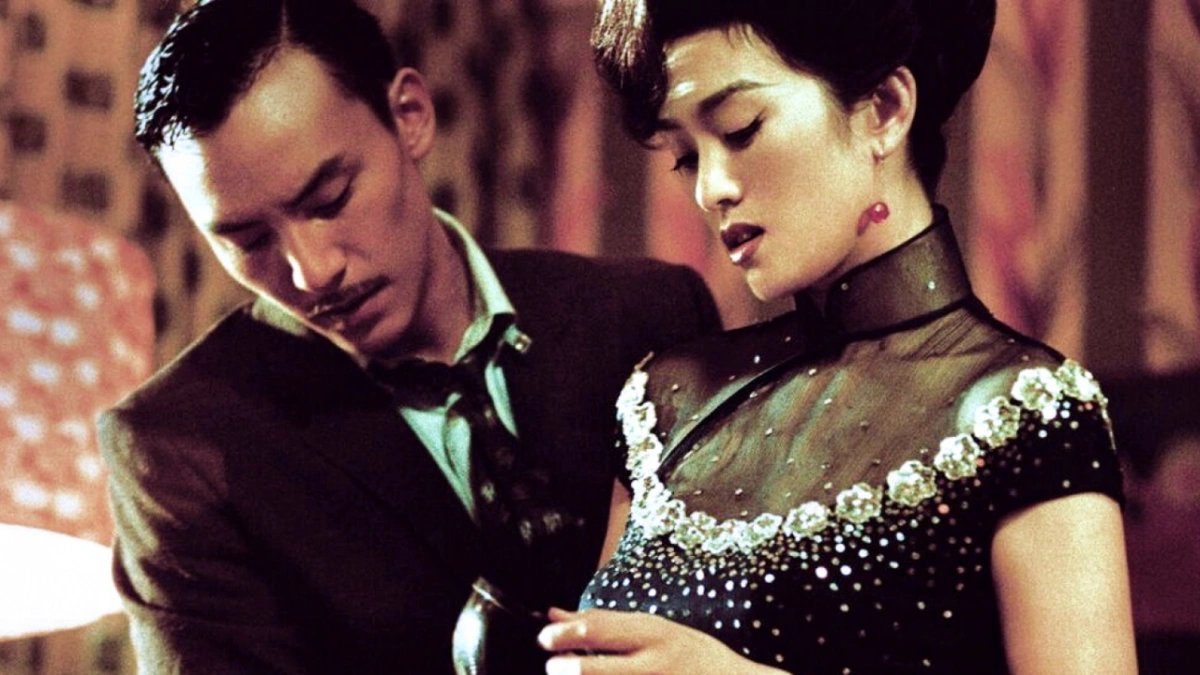
Wong Kar-wai’s ‘The Hand’ is part of a 2004 Anthology film that explored ‘eros’ as a consistent theme through its three segments. Set in the 1960s, Kar-wai’s segment follows Zhang, a young dressmaker’s assistant, who falls for Miss Hua, his high-class call-girl client. Zhang is shy and reserved, whereas Miss Hua is commanding and self-assured. During their first encounter, when he goes to take her measure for a dress, she seduces him. It leads to their passionate & deeply sensual romance across multiple years despite rarely touching each other’s bodies.
As most of Kar-wai’s work, ‘The Hand’ portrays love and burning desire through long periods of yearning. Despite being barely an hour long, it shows Kar-wai in complete command over the medium. Unlike his works filled with raw, kinetic energy, ‘The Hand’ feels much more restrained in its cinematic approach. Much like ‘In the Mood for Love,’ this film features minimal camera movements and a subdued color palette with frames filled with rich textural beauty. Be it a stained glass or an intricately embellished dress, the film evokes eros through its suggestive approach. So, even a touch or a glance oozes with sensuality that no explicit scenes can ever replicate.
5. 2046 (2004)
“2046” is a cinematic treat for any person who has closely followed Wong Kar-wai’s other works since it references them in his style. He often lets characters speak their minds through voice-over narration, which fits in his fluid, poetic storytelling approach. In “2046,” he brings back the male lead from “In the Mood for Love” (played by Tony Leung Chiu-wai), who rekindles his past to build a future in his fictional world. While following the aftermath of his unfulfilled affair with his married neighbour, it also shows Mimi/Lulu from “Days of Being Wild” seeking love. Their doomed romance amps up the film’s melancholic tone.
Ultimately, “2046” becomes their pathway to find a respite from their repressed emotions. This poignant, sophisticated film introduces science fiction as a means to fulfil unrequited love. The script explores different aspects of a writer’s life – how he borrows their inspiration and adapts it to his fictional world. It shows how reality shapes, determines, and oftentimes dictates the resolutions of such fictional narratives. Its seamless editing connects these different timelines through common themes and the underlying subtext. So, his unfulfilled stories and their aftertaste also linger on our minds.
4. Fallen Angels (1995)
“Fallen Angels” follows two stories that have very little to do with each other besides brief overlaps. The first story follows a hitman and his partner in crime and love. Another story follows a mute street vendor and a woman who escaped prison. While the second couple frequently runs into each other, the hitman and his partner keep daydreaming about their past while hardly ever meeting. The film navigates different shapes and forms we define love and how it unfolds for people who live on the fringes. It explores pain, sorrow, heartache, and joy with an inimitable charm.
Related to Wong Kar-wai: Fallen Angels [1995]: The Art Of Longing
“Fallen Angels” is a treat for every Wong Kar-wai fan who wants to get submersed into his world for a brief period. It seamlessly transitions from its bleak to lively moments and immerses us in the lives of its yearning characters. Stylistically, it explores some different routes. Instead of keeping the characters at a distance, it places them uncomfortably close with its wide, fish-eye lenses. Its use of green and yellow tints sets its gritty cityscapes and helps highlight its thematic contrast. Even after years, their impact remains unparalleled.
3. Chungking Express (1994)
Thanks to Quentin Tarantino who spoke about the film with great enthusiasm, the Western film world became aware of “Chungking Express.” It follows two male cops mulling over their failed relationships. In the first story, the cop meets a drug smuggler. He is an open book who speaks about his past relationship with anyone willing to listen. But she hardly reveals anything about her. The second story is about a quirky local snack bar worker who has a crush on a heartbroken cop. Whether their romance succeeds or fails, they are not portrayed as emotional fools. The film believes in their pursuit and makes us root for them. It indulges in shooting all the moments with childlike wonder, that can reveal more of their character to us.
The film is effervescent, and charming and exudes a cheerful optimism while exploring its characters’ romantic outlook toward the world. While making a film in a limited period and budget, Wong Kar-wai created something that remains eternally vivacious. Even the moments of sadness get soaked into the spirit of its hopeless romantics. The film indulgently explores their lives and quirks through rose-tinted tinted glasses of immaturity and shows their ethos through a refreshing outlook. If not for the capitalistic pursuit of goals, wouldn’t most of us want to spend our lives just like them?
2. In the Mood for Love (2000)
Often regarded as one of the finest works of the 21st century, “In the Mood for Love” offers a rare cinematic brilliance. While narrating a delicate tale of yearning, the film creates an elaborate play of emotions. Simultaneously, it maintains sophistication through the characters’ splendid appearances. Trapped in the conventional institution of marriage, the lead characters from “In the Mood for Love” look for other sources of happiness. But even if their spouses cheat on them, they refuse to cross their moral obligations. It separates the film from Wong Kar-wai’s other works, where the characters do not value such limitations and wear their hearts on their sleeves.
Related to Wong Kar-Wai: 10 Best Tony Leung Chiu-wai Movie Performances
The film’s undivided focus on their turmoil deepens its gloomy tone. Its carefully crafted visuals compose frames within frames to convey their entrapment. By shooting the actors with long lenses, the film achieves the overarching feeling of distance and detachment. Yumeji’s theme, a music track that shows up as a recurring motif, becomes almost like an anthem for this eternally yearning couple. Maggie Cheung and Tony Leung Chiu-wai convey a plethora of emotions through their muted gestures and body language. A mix of all these elements makes the film a classic, sumptuous mood piece. Besides its characters, it eternalises the spaces they inhabit.
1. Happy Together (1997)
Often regarded as one of the key films from the New Queer Cinema, “Happy Together” led Wong Kar-wai to win the Best Director award at the 1997 Cannes Film Festival, It follows Ho Po-Wing (Leslie Cheung), who stays in Buenos Aires without a passport. Being confined, he looks for momentary pleasures. Lai Yiu-Fai (Tony Leung Chiu-Wai), who works hard at any job he gets, cares for him. While being responsible for their well-being, he dreams of a better tomorrow. Meanwhile, Chang (Chen Chang) has a family back home in Taiwan that he can go back to at any time. These characters reflect the ground situations at the time while maintaining the incredibly human drama at its core.
To shoot this film, Wong Kar-wai went all the way to the other part of the world in Argentina. Since it came around the time of the handover of Hong Kong from Britain to China, the characters and this move are regarded to have a metaphorical significance. While the film portrays a relationship between two men, it separates itself from the works where queerness is explored only through the lens of ostracisation. It offers an intimate portrayal of the lows and highs in their relationship. Their heartaches feel incredibly personal in the cramped-up spaces they occupy. So, it resonates just as well with any two people struggling to find a balance in their romantic bond.
Related to Wong Kar-Wai: 20 Important Queer Movies Of The 20th Century
The spaces gain importance to the character’s mental state. While being visually stunning, the human story at its core remains contextually and culturally timeless. So, you cannot help but sob uncontrollably for these poor souls who are only trying to get a grip on their love life.

